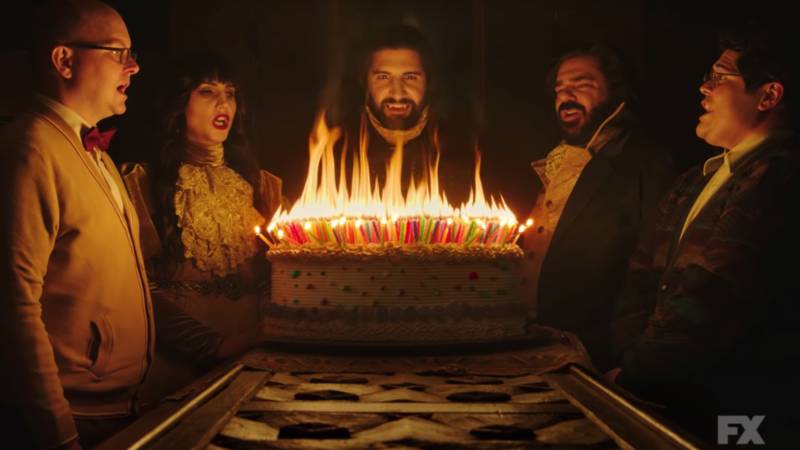In 2014, New Zealand co-directors/co-writers Taika Waititi and Jemaine Clement released What We Do In The Shadows, a hilarious, shambling-yet-unerringly-precise mockumentary about a group of vampires sharing a house in modern-day Wellington, New Zealand.
The two men also starred in the film, as a pair of odd-couple vampire roommates: the sweet-natured dandy Viago (Waititi), all pinky rings and ruffled shirts and concern about the upkeep of the house's common areas, and the surly, less-sinister-than-he-thinks-he-is Vladislav (Clement). Jonny Brugh and Ben Fransham played two other undead housemates, and the whole endeavor was driven by a commitment to spoofing both the documentary format (shaky camera, testimonials, the subjects' hyper-awareness of their status as documentary subjects) and the ropiest tropes of vampire lore (the vamps go clubbing, only to grow increasingly frustrated when bouncer after bouncer neglects to expressly invite them in).
The central joke—the film's artisanal blend of the grotesque with the utterly, punishingly, unremittingly mundane—made for a tone that just worked. Marked by the same dry, deadpan, low-wattage and quintessentially Kiwi affect that typified HBO's Flight of the Conchords (which Clement co-created with Bret McKenzie and James Bobin; Waititi wrote and directed several episodes), the original What We Do In The Shadows exuded so much easy, unforced charm and sustained cleverness you just wanted to crawl inside it and live for a while.
Now (Wednesday, March 27, specifically) to the FX Network, comes the U.S. incarnation—not a film, but a 10-episode series—and if fans of the 2014 film harbor any qualms about that prospect, it's understandable. After all, the movie deftly exploited—one could even say drafted on—New Zealanders' reputation as some of the more unprepossessing members of the global community. Which is why, despite the characters' arcane abilities and everyday evilness, they came across like underdogs you couldn't help cheering for. Could an American series strike that necessary, slightly diffident tone? And could that tone take root, once transplanted half a world away from the island on which it germinated?

9(MDAxOTAwOTE4MDEyMTkxMDAzNjczZDljZA004))

